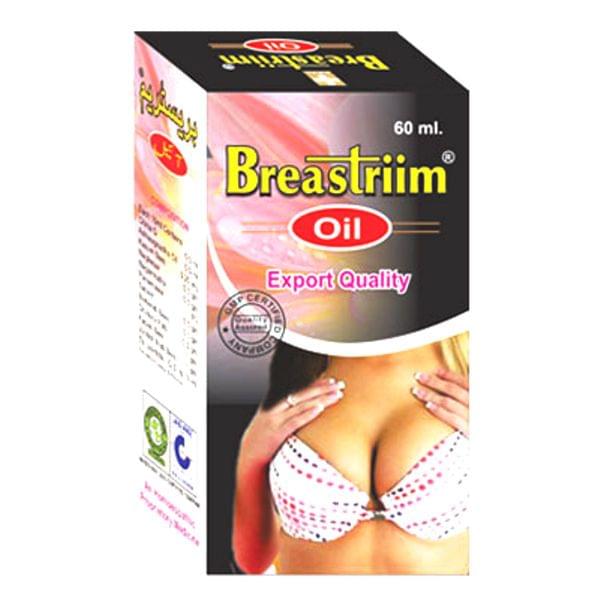Choosing the right weight loss tablet can be tough. There are so many options, and each one works differently. It’s important to know what you’re looking for and how these tablets can help you. This guide will help you understand the different types of weight loss tablets, what to look for, and how to choose the best one for your needs.
Key Takeaways
- Understand the basics of weight loss tablets, including what they are and how they work.
- Set realistic weight loss goals and consult with healthcare professionals before starting any new supplement.
- Evaluate the safety and potential side effects of weight loss tablets by reading clinical studies and understanding contraindications.
- Compare different types of weight loss tablets, such as prescription vs over-the-counter and natural vs synthetic options.
- Consider your lifestyle, dietary habits, and budget when choosing a weight loss tablet to ensure long-term sustainability.
Understanding Weight Loss Tablets
What Are Weight Loss Tablets?
Weight loss tablets are supplements designed to help people lose weight. They come in various forms, including pills, capsules, and tablets. These products aim to assist in weight management by targeting different aspects of the body’s metabolism and appetite.
How Do They Work?
Weight loss tablets work through several mechanisms. Some tablets help to suppress appetite, making you feel full sooner. Others boost your metabolism, helping your body burn more calories. There are also tablets that block the absorption of fat or carbohydrates.
Common Ingredients in Weight Loss Tablets
Many weight loss tablets contain a mix of natural and synthetic ingredients. Common ingredients include:
- Caffeine: Boosts metabolism and energy levels.
- Green Tea Extract: Helps in burning fat.
- Garcinia Cambogia: Suppresses appetite.
- Glucomannan: A fiber that makes you feel full.
It’s important to read the label and understand what you’re taking. Some ingredients may cause mild side effects, so always consult a healthcare professional before starting any new supplement.
Assessing Your Weight Loss Goals
Setting Realistic Expectations
When starting your weight loss journey, it’s important to set goals that are achievable. Unrealistic goals can lead to disappointment and frustration. Aim for steady progress rather than quick fixes. A good rule of thumb is to aim for losing 1-2 pounds per week.
Short-term vs Long-term Goals
It’s helpful to differentiate between short-term and long-term goals. Short-term goals might include losing a certain amount of weight in a month, while long-term goals could focus on maintaining a healthy weight over the years. Both types of goals are important for sustained success.
Consulting with Healthcare Professionals
Before starting any weight loss plan, it’s wise to consult with healthcare professionals. They can provide personalized advice based on your health history and current condition. Doctors, dietitians, and nutritionists can help you create a plan that’s safe and effective for you.
Remember, the journey to weight loss is unique for everyone. Tailor your goals to fit your personal needs and lifestyle.
Evaluating Safety and Side Effects
Reading Clinical Studies
Before choosing a weight loss tablet, it’s important to read clinical studies. These studies provide valuable information on the effectiveness and safety of the tablets. Always look for studies that are peer-reviewed and published in reputable journals. This ensures the information is reliable and trustworthy.
Identifying Potential Side Effects
Weight loss tablets can have side effects. Common side effects include nausea, vomiting, diarrhea, dizziness, headaches, increased heart rate, infections, and indigestion. It’s crucial to be aware of these potential issues before starting any new medication. If you experience any severe side effects, stop taking the tablet and consult your doctor immediately.
Understanding Contraindications
Contraindications are conditions or factors that make using a particular medication risky. For weight loss tablets, certain health conditions like heart disease, high blood pressure, or pregnancy can be contraindications. Always check with your healthcare provider to ensure the tablet is safe for you, especially if you have any pre-existing conditions.
Comparing Different Types of Weight Loss Tablets
Prescription vs Over-the-Counter
Weight loss tablets come in two main types: prescription and over-the-counter (OTC). Prescription tablets are usually stronger and are given by a doctor. They are often used for people who have serious health problems because of their weight. On the other hand, OTC tablets can be bought without a prescription and are generally milder. They are often used by people who want to lose a few pounds.
Natural vs Synthetic Options
Weight loss tablets can also be natural or synthetic. Natural tablets are made from plants and other natural ingredients. They are often seen as safer but may not be as strong. Synthetic tablets are made from chemicals in a lab. They can be more effective but might have more side effects.
Popular Brands and Their Efficacy
There are many brands of weight loss tablets, each claiming to be the best. Here are a few popular ones:
- Alli: An OTC tablet that blocks fat from being absorbed.
- Phentermine: A prescription tablet that reduces appetite.
- Hydroxycut: A natural option that boosts metabolism.
When choosing a weight loss tablet, it’s important to think about your own needs and talk to a healthcare professional. This will help you find the best option for you.
Considering Lifestyle and Dietary Habits
When choosing a weight loss tablet, it’s important to think about your lifestyle and eating habits. This will help you find a product that fits well with your daily routine and long-term goals.
Compatibility with Your Diet
Different weight loss tablets work better with certain diets. For example, some tablets might be more effective if you follow a low-carb diet, while others might work best with a high-protein diet. Make sure to pick a tablet that matches your eating habits to get the best results.
Impact on Physical Activity
Your level of physical activity can also affect how well a weight loss tablet works. If you exercise a lot, you might need a different type of tablet than someone who is less active. Look for tablets that support your exercise routine and help you stay energized.
Long-term Sustainability
It’s important to choose a weight loss tablet that you can use for a long time. Some tablets might work well at first but become less effective over time. Think about whether you can stick with the tablet for months or even years. This will help you achieve lasting results.
Remember, the best weight loss tablet is one that fits your lifestyle and helps you reach your goals without causing harm.
Budgeting for Weight Loss Tablets
Cost vs Benefit Analysis
When choosing weight loss tablets, it’s important to weigh the cost against the benefits. Some tablets might be expensive but offer better results, while others are cheaper but less effective. Make sure to consider the long-term value.
Insurance and Prescription Coverage
Check if your insurance plan covers weight loss tablets. Some prescription tablets might be covered, reducing your out-of-pocket expenses. Always verify with your insurance provider to understand your coverage options.
Finding Discounts and Coupons
Look for discounts and coupons to save money on weight loss tablets. Many pharmacies and online stores offer promotions. Signing up for newsletters or loyalty programs can also provide additional savings.
Budgeting for weight loss tablets involves careful planning and research to ensure you get the best value for your money.
Managing your budget for weight loss tablets can be tricky, but it doesn’t have to be. Our website offers a variety of affordable options to help you achieve your goals without breaking the bank. Check out our special deals and discounts to find the best products for your needs. Visit us today and start your journey to a healthier you!
Conclusion
Choosing the right weight loss tablet can be a tricky task, but it’s important to find one that fits your needs. Always talk to your doctor before starting any new supplement. Look for tablets that have been tested and have good reviews. Remember, no pill can replace a healthy diet and regular exercise. Take your time, do your research, and make the best choice for your health. With the right approach, you can find a weight loss tablet that helps you reach your goals safely.
Frequently Asked Questions
What are weight loss tablets?
Weight loss tablets are pills that people take to help them lose weight. They often contain ingredients that can boost metabolism, reduce appetite, or block fat absorption.
How do weight loss tablets work?
Weight loss tablets work in different ways. Some help you feel less hungry, while others make your body burn fat faster or prevent your body from absorbing fat from food.
Are weight loss tablets safe?
The safety of weight loss tablets can vary. It’s important to read clinical studies and talk to a healthcare professional before starting any new supplement.
Do I need a prescription for weight loss tablets?
Some weight loss tablets require a prescription from a doctor, while others can be bought over-the-counter at stores. It’s best to consult with a healthcare provider to know which is right for you.
Can weight loss tablets cause side effects?
Yes, weight loss tablets can have side effects. These can range from mild issues like headaches to more serious problems like heart palpitations. Always read the label and consult a healthcare professional.
How do I choose the right weight loss tablet for me?
Choosing the right weight loss tablet depends on your weight loss goals, your health, and your lifestyle. It’s important to set realistic expectations and consult with a healthcare professional to find the best option for you.











